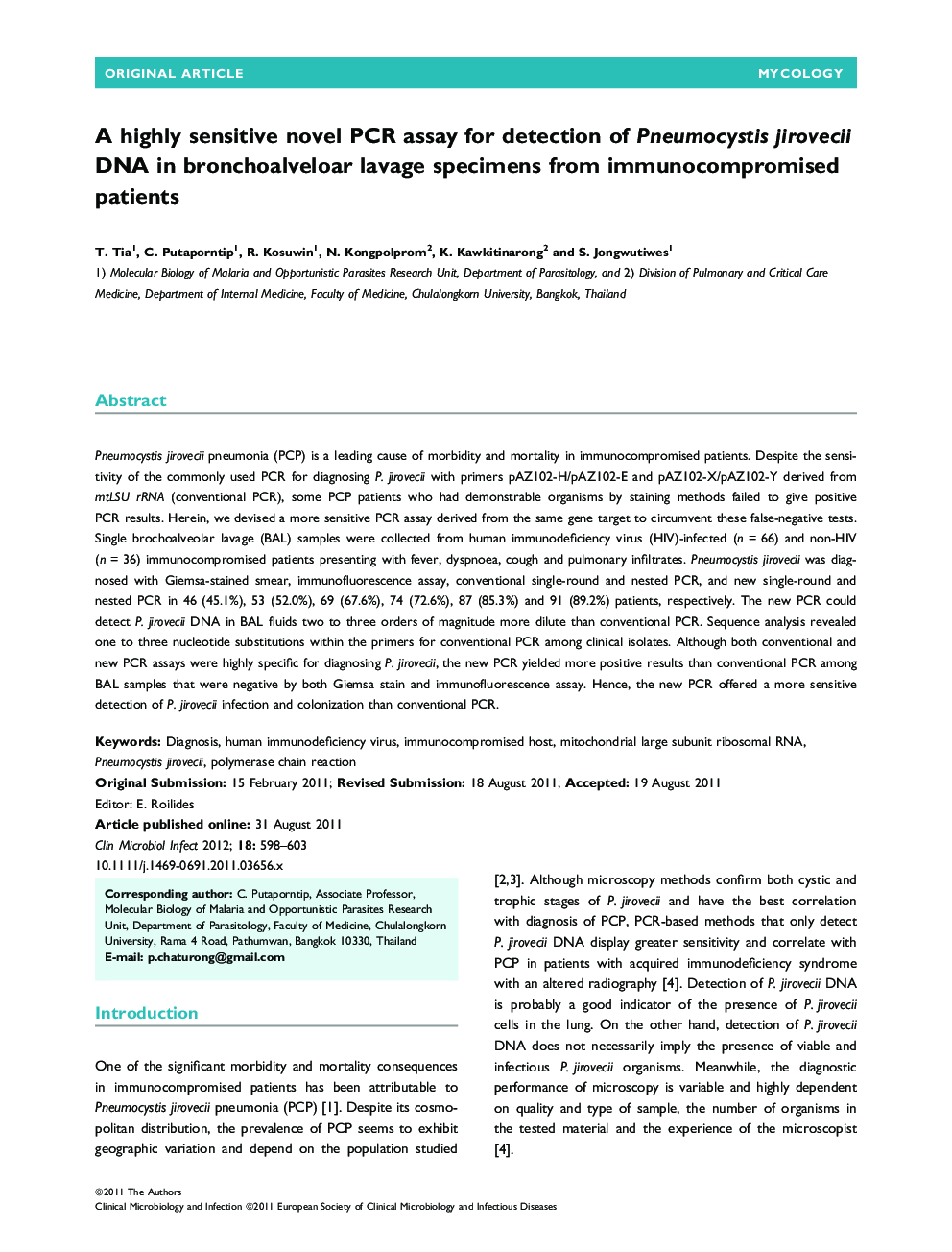| Article ID | Journal | Published Year | Pages | File Type |
|---|---|---|---|---|
| 6130973 | Clinical Microbiology and Infection | 2012 | 6 Pages |
Abstract
Pneumocystis jirovecii pneumonia (PCP) is a leading cause of morbidity and mortality in immunocompromised patients. Despite the sensitivity of the commonly used PCR for diagnosing P. jirovecii with primers pAZ102-H/pAZ102-E and pAZ102-X/pAZ102-Y derived from mtLSU rRNA (conventional PCR), some PCP patients who had demonstrable organisms by staining methods failed to give positive PCR results. Herein, we devised a more sensitive PCR assay derived from the same gene target to circumvent these false-negative tests. Single brochoalveolar lavage (BAL) samples were collected from human immunodeficiency virus (HIV)-infected (n = 66) and non-HIV (n = 36) immunocompromised patients presenting with fever, dyspnoea, cough and pulmonary infiltrates. Pneumocystis jirovecii was diagnosed with Giemsa-stained smear, immunofluorescence assay, conventional single-round and nested PCR, and new single-round and nested PCR in 46 (45.1%), 53 (52.0%), 69 (67.6%), 74 (72.6%), 87 (85.3%) and 91 (89.2%) patients, respectively. The new PCR could detect P. jirovecii DNA in BAL fluids two to three orders of magnitude more dilute than conventional PCR. Sequence analysis revealed one to three nucleotide substitutions within the primers for conventional PCR among clinical isolates. Although both conventional and new PCR assays were highly specific for diagnosing P. jirovecii, the new PCR yielded more positive results than conventional PCR among BAL samples that were negative by both Giemsa stain and immunofluorescence assay. Hence, the new PCR offered a more sensitive detection of P. jirovecii infection and colonization than conventional PCR.
Keywords
Related Topics
Life Sciences
Immunology and Microbiology
Microbiology
Authors
T. Tia, C. Putaporntip, R. Kosuwin, N. Kongpolprom, K. Kawkitinarong, S. Jongwutiwes,
